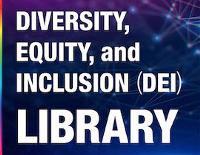Diverse Faculty Recruiting
Home
/
About SAEM
/
Academies, Interest Groups, & Affiliates
/
ADIEM
/
Resources
/
DEI Resource Library
/
Diverse Faculty Recruiting

Articles
- Increasing Diversity in Academic Medicine Via a Strategic Intermural Housestaff Leadership Development Program By 2055, the United States will no longer have a single race or ethnic majority. As the nation's demographics change, the field of medicine must also change to meet the needs of diverse patients.
- US Postgraduate Trainee Racial, Ethnic, and Gender Representation and Faculty Compensation By Specialty Clinical specialties differ in workforce diversity and compensation. A study of trainees in 12 specialties from 2011 to 2018 found racial and gender diversity was inversely associated with compensation.
- Addressing diversity in the physician workforce through social determinants of medical education Social determinants of medical education are the most impactful aspects of recruiting, retaining, and producing the next generation of a diverse physician workforce. We can use the same framework well known to describe social determinants of health to identify social determinants that impact medical education learners and their ability to enter the workforce and succeed to completion.
- Closing the gender pay gap in emergency medicine: Paradigms to consider for leaders, faculty, and trainees The gender pay gap among physicians is a well documented and persistent problem and has a profound impact on earnings over a career lifetime. This paper describes examples of concrete initiatives three institutions took to identify and address gender pay gaps.
- Addressing disparities in academic medicine: what of the minority tax? by Rodigez, and Campbell, Pololi. The proportion of black, Latino, and Native American faculty in U.S. academic medical centers has remained almost unchanged over the last 20 years. Some authors credit the "minority tax"—the burden of extra responsibilities placed on minority faculty in the name of diversity. This tax is in reality very complex, and a major source of inequity in academic medicine.
- Restructure Your Organization to Actually Advance Racial Justice by Evelyn R. Carter of Harvard Business Review. The US is at a turning point, and the world is watching. The murder of George Floyd — preceded by the murders of Breonna Taylor, Ahmaud Arbery, and many, many others— has sparked an outpouring of grief and activism that’s catalyzed protests in all 50 states and around the world. For Black people, the injustice we feel around the murder of another unarmed Black person is not new — but the scale of recognition of systemic racism and the allyship we are feeling from others is.
- Navigating Bias on Interview Day: Strategies for Charting an Inclusive and Equitable Course by Kamna Singh Balhara, MD, MA; P. Logan Weygandt, MD, MPH; Michael R. Ehmann, MD, MPH, MS; Linda Regan, MD, MEd









